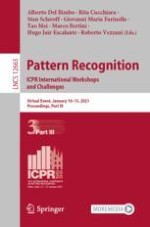2021 | OriginalPaper | Buchkapitel
Explanation-Driven Characterization of Android Ransomware
verfasst von : Michele Scalas, Konrad Rieck, Giorgio Giacinto
Erschienen in: Pattern Recognition. ICPR International Workshops and Challenges
Aktivieren Sie unsere intelligente Suche, um passende Fachinhalte oder Patente zu finden.
Wählen Sie Textabschnitte aus um mit Künstlicher Intelligenz passenden Patente zu finden. powered by
Markieren Sie Textabschnitte, um KI-gestützt weitere passende Inhalte zu finden. powered by
